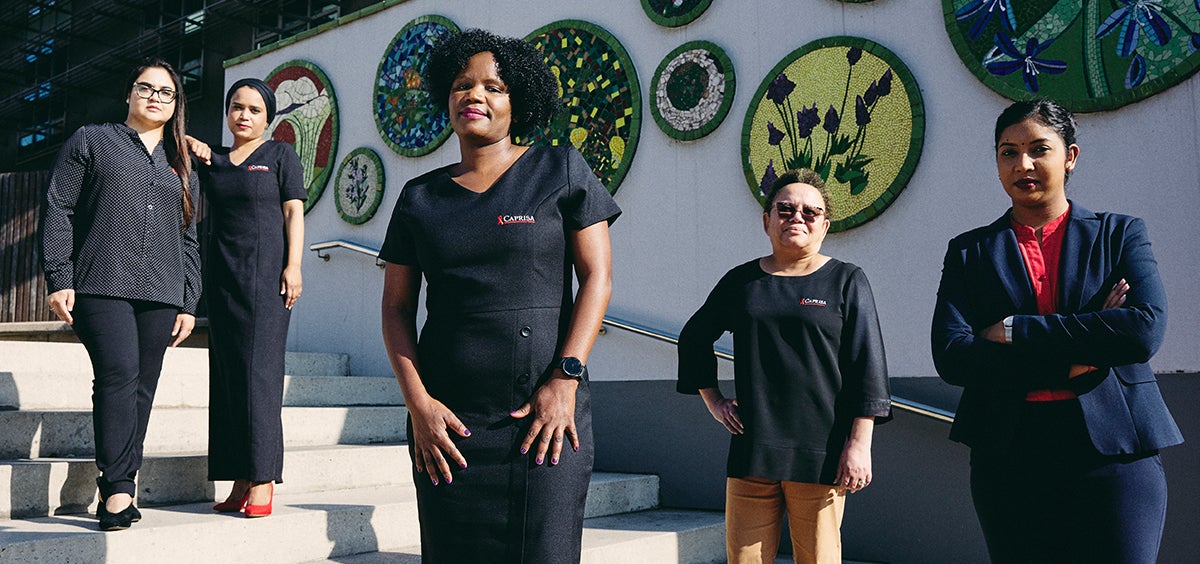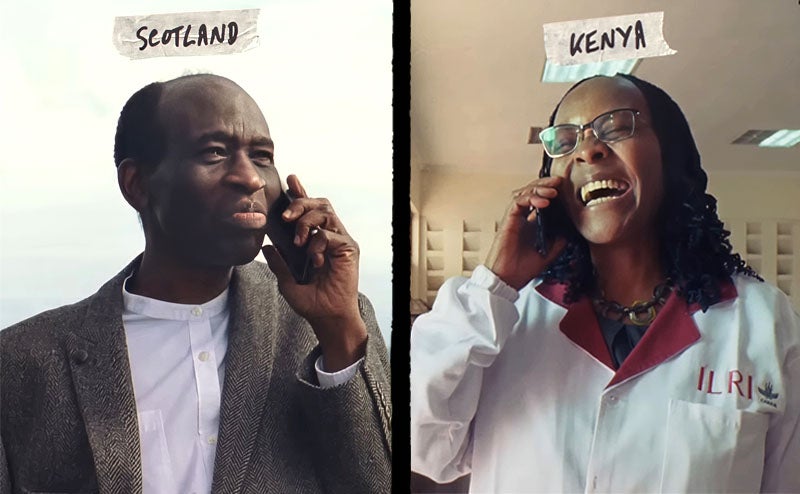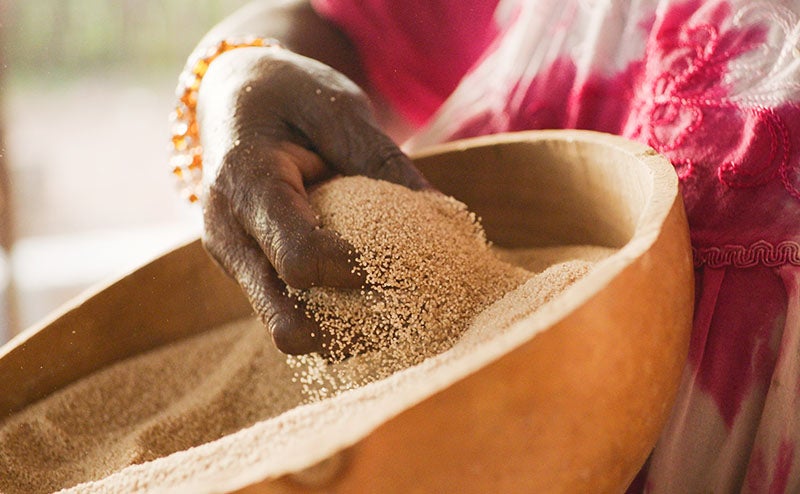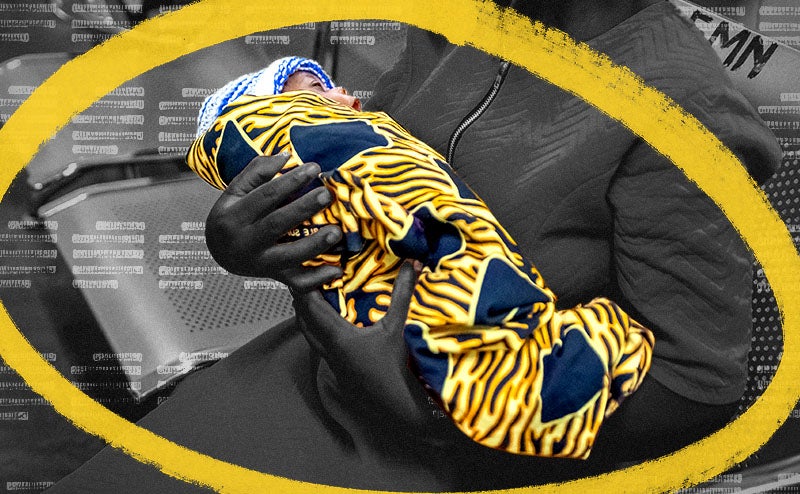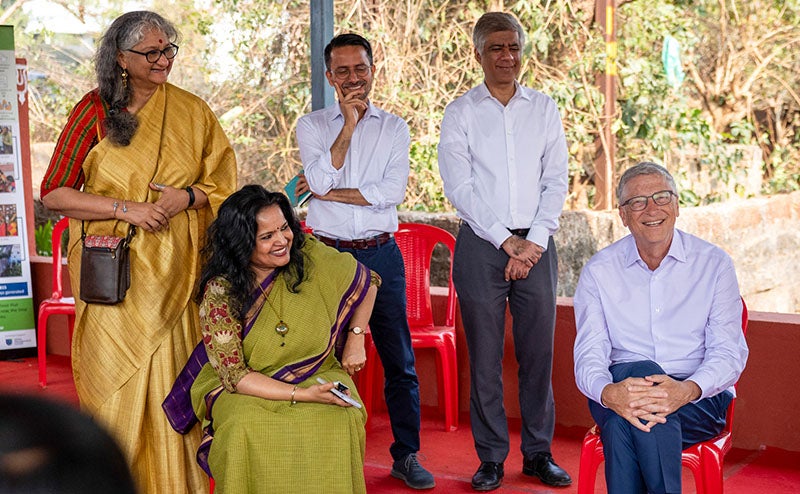Growing up in a rural community with high rates of HIV and TB, Nonhlanhla Yende could have been just another statistic. Instead, she became a world-class statistician, one who’s using her expertise to save lives around the globe.
The name Nonhlanhla means “one with good luck” in Zulu, the most common first language in her native South Africa. But her rise from deep poverty to the head of biostatistics at one of Africa’s most prestigious research institutions had very little to do with luck. When I heard her story, I was blown away.
Dr. Nonhlanhla Yende-Zuma, as she is now known, was born in 1978, more than a decade before the fall of apartheid. Because her father left shortly after she was born, her family depended entirely on the small salary that her grandfather earned by raising cattle and working in the kitchen of a bed and breakfast. “My grandfather was working in a lovely kitchen for a white family,” she says, “but his own family often went hungry.”
Despite her hunger, Nonhlanhla had to walk 10 kilometers each way to the community’s one-room schoolhouse. Most people in her small town considered it a waste of time for a girl to attend school. “To this day, many people think that the only thing girls need to learn is how to do laundry and cook for their future husbands,” she says.
But Nonhlanhla imagined a different life for herself, largely because her Uncle Petros helped her see her own potential. From the time Nonhlanhla was very young, Petros pushed her to read anything he managed to find for her, and he became a fierce champion of her schooling. When her mother or grandmother told her to do a chore like fetching water, Petros would step in and say, “No, she’s studying.” He also stuck up for her when the boys in her class—and even some male teachers—tried to undermine the smart girl who was outshining the boys.
Nonhlanhla earned her “matric” (high school diploma) shortly after the fall of apartheid and then had an opportunity to attend the University of KwaZulu Natal (UKZN). Once she arrived, she signed up to study information technology, because she (and Petros) saw it as a pathway to a good career. But she felt lost and overwhelmed, and she was not the only one. She and a few other disadvantaged Black students approached a school counselor and acknowledged that they had no idea how to use a computer, and their limited command of English made it hard for them to understand their professors.
The counselor arranged for the students to get computer training, and she asked the professors to speak more slowly for the Zulu speakers. The counselor also suggested to Nonhlanhla that she might want to switch from IT to math. “That was a turning point. I was good in math, and math required very little English,” she says. (She is now fluent in English.)
After a year of earning top grades in math, she was invited to join a rigorous statistics course, which appealed to her because she felt statistics would give math more meaning in the real world. She excelled in the program and went on to become the first Black South African woman to graduate from UKZN with a PhD in statistics. And she did it while working full time and raising two daughters.
Nonhlanhla could have landed a lucrative position in the country’s prominent financial sector. Instead, she chose global health. She was drawn to the idea of working on the health challenges of her community and family.
When she was in high school, HIV/AIDS began to decimate her community. A few years later, a loved one died of AIDS. “No one could even use the term HIV or AIDS. They just said, ‘It’s that disease.’”
“No one could even use the term HIV or AIDS.”
She began her global health career as an intern at CAPRISA, an organization that the Gates Foundation has long supported for its outstanding HIV research, and she has risen through the ranks. (A couple of years ago, I wrote about the married couple that founded CAPRISA.) Her work centers on assembling huge datasets and converting them into useful knowledge for clinicians and public health officials.
For example, when Dr. Yende-Zuma started at CAPRISA, clinicians had no idea how to treat patients infected with both HIV and TB. Most of the time, they gave these patients six months of TB treatments and only then initiated anti-retroviral therapies for HIV. Dr. Yende-Zuma and her colleagues produced strong evidence that this practice was resulting in needless deaths: Integrating TB treatment and ARVs reduced mortality drastically. Their evidence was so compelling that the World Health Organization adopted this guidance for doctors around the globe.
As you can imagine, Dr. Yende-Zuma’s skills were in great demand when COVID arrived in South Africa. Her husband and two children saw very little of her for the first year of the pandemic, because she worked long hours providing support to people who were advising the national health department. For instance, she designed an implementation study to determine whether the not-yet-approved Johnson & Johnson vaccine would be effective in South Africa; there was good reason to worry that the country’s high HIV prevalence could reduce the vaccine’s effectiveness. She and her colleagues proved that the vaccine was, in fact, highly effective.
She also helped many people in her community overcome their skepticism of Western medicine. “There were lots of rumors about the vaccine. I told my mom, ‘Tell your church ladies that your daughter was part of the team that brought those vaccines to South Africa and proved they were safe and effective,” she says. Dr. Yende-Zuma became a fixture on television, bringing the same message to the whole country. “In my wildest dreams,” she says, “I never thought I’d be part of a high-level team who would do something so important for our country.”
If she hadn’t been so determined—and encouraged by her uncle—she might never have had the chance. Instead, she’s advancing health policy and practice around the world, while helping many others make the most of their talents too.
